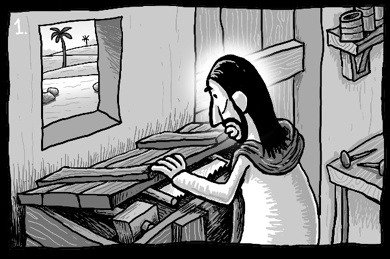Phil and I visited Oak Cliff Bible Fellowship, with pastor Dr. Tony Evans this morn.
It was a great experience I thought. Definitely a church with it’s finger on the pulse of the community.
This is a church that’s been reported on in several places for it’s outreach to the community. I’ve always thought that a church should be judged on the impact it makes on the local community. If the church were to suddenly close down, what type of effect/impact would it have on the local neigbhorhood. Is the church really reaching out to its neighbors, or just benefiting the saints?
A surprise to the visit was a visit by Fred Hammond. The church didn’t advertise him coming or being there, he just came out mid-service. Dr. Evans said, “Look what you would have missed if you had stayed home. And some people will say, ‘But you didn’t tell us Fred was coming.’ That’s right, we wanted you to come to church for God not Fred. There’s no telling who will show up next week.”
Good stuff.
Anyways, Dr Evans had a great message on Luke 4:1-13, about Jesus’ time in the wilderness. Thought I’d share some of my notes.
Luke 4:1 – “Jesus full of the Holy Spirit, returned from the Jordan and was led around by the Spirit in the wilderness.”
We should be constantly be under the influence of the Spirit
The Spirit was in full control of Jesus
The Spirit led him into the wilderness
So many times we get frustrated about being in the wilderness, but sometimes the Spirit will lead us into the wilderness
The Spirit led Jesus/leads us into a hot, barron, isolated wilderness
Luke 4:2 – For forty days, being tempted by the devil.
Satan came to tempt Jesus in the very place the Spirit had led Jesus
The Spirit gives you a test, but the devil will tempt you
Often tests and temptation can happen side by side
Luke 4:2,3 – And He ate nothing during those days, and when they had ended, He became hungry. And the devil said to Him, “If you are the Son of God, tell this stone to turn to bread.”
Jesus had given up what He craved to get what He really needed
This was great – God/The Spirit will lead you to the devil, not so the devil can defeat you, but so you can defeat the devil
Satan called on Jesus to meet His own needs, independent of God
Satan will tempt us to fix our own problems without God’s help
Jesus found a parallel situation in scripture to find the solution for His problem
In the wilderness God will show you He is God
When you don’t develop in the wilderness, God won’t lead you to your destiny or the promised land
Luke 4:6,7 – And the devil said to Him, “I will give You all this domain and its glory; for it has been handed over to me, and I give it to whomever I wish. Therefore if You worship before me, it shall all be Yours.”
Satan told Jesus that he could bless Him
God didn’t give the world over to Satan – Adam did
God gave Adam the rule over the world, but Adam gave that over to Satan when Eve and Adam sinned in the Garden of Eden
Often our blessings come from Satan
We walk around saying “Blessed! Blessed!” when the blessings are not from God
The blessings of the Lord bring no sorrow
If the blessings bring sorrow – we may be enjoying blessings from the wrong blessor
Luke 4:12 – And Jesus answered and said to him, “It is said, ‘You shall not put the Lord your God to the test.”
You don’t back God into a corner to make Him do a miracle
Then Evans went Kayfabe on us with a wrestling illustration, that got everyone up and fired up.
He asked if anyone watched professional wrestling. I think I may have been the only one who raised my hand.
“Let me let you in on a secret,” Evans said. “The winner is chosen before each match. But they have to entertain the crowd. They have to show you how the victor became the victor. They have to make a profit. So when the match starts the victor already knows he’s going to win. That’s why when he gets power slammed it doesn’t really phase him. When he gets body slammed it doesn’t really phase him. If he gets a litle bloody, that’s OK because he knows who’s going to win in the end.”
We already know who’s going to win in the end. We already know we’ll win in the end — as members of God’s kingdom. So when the devil attacks and slams us to the mat – we know it’s not that bad, because we win in the end.
Like this:
Like Loading...
